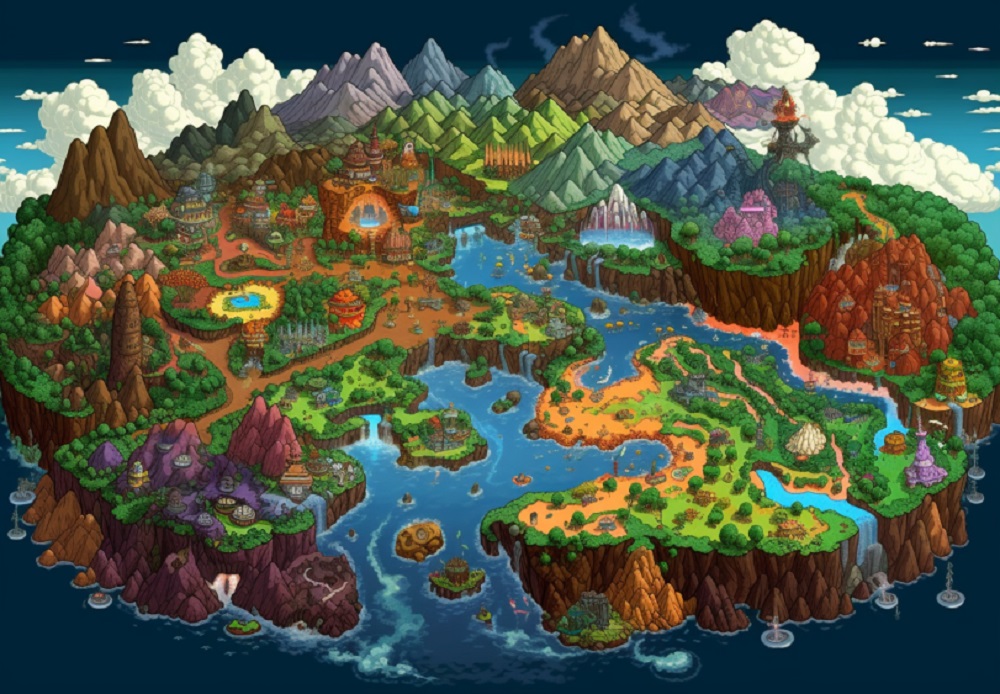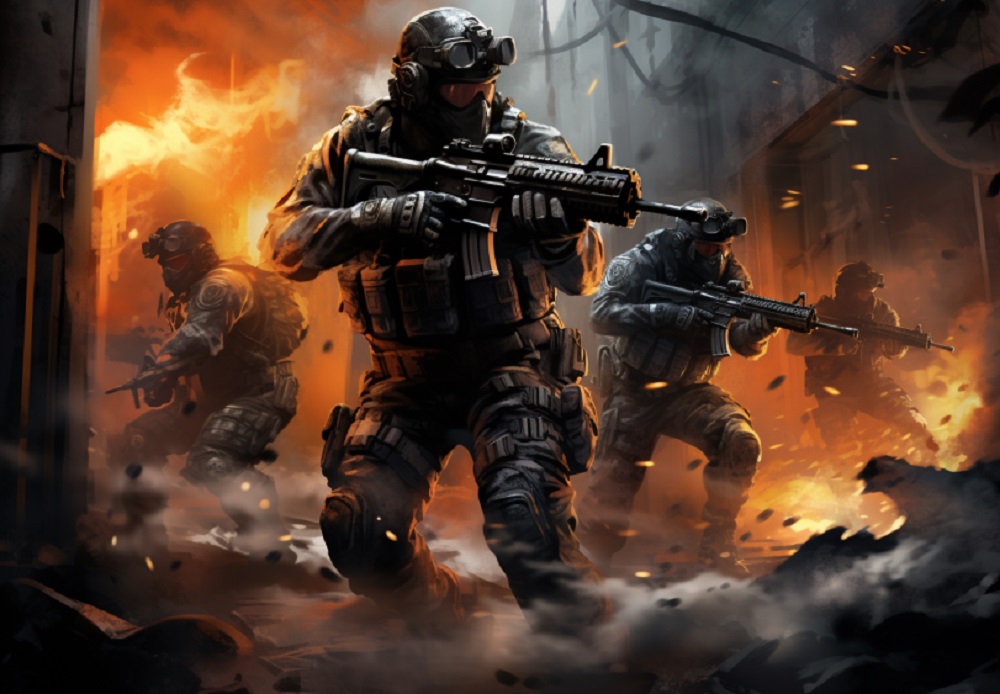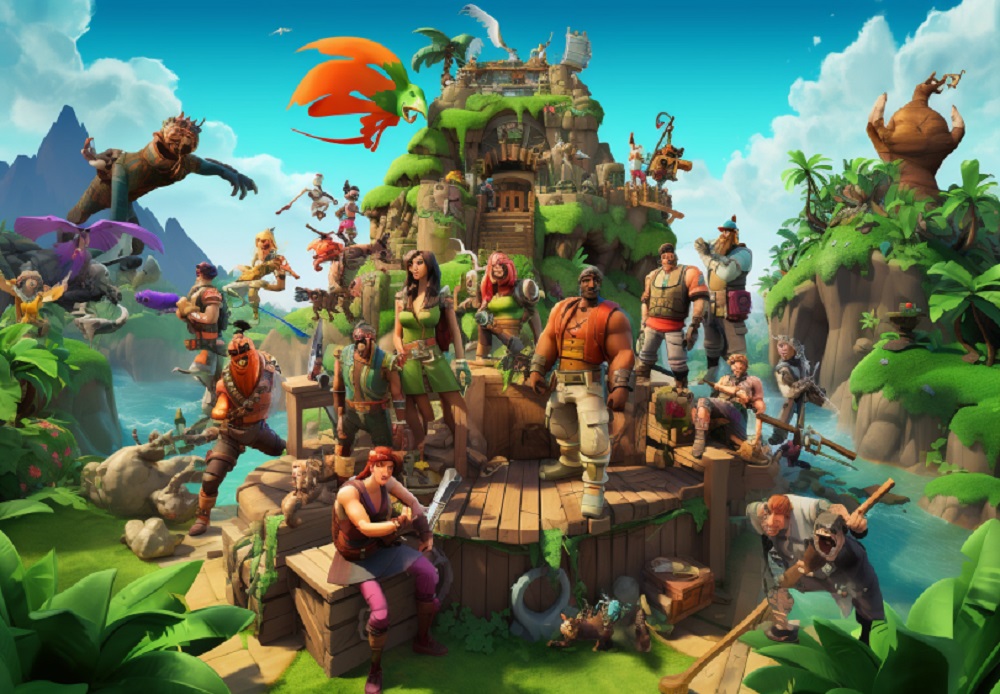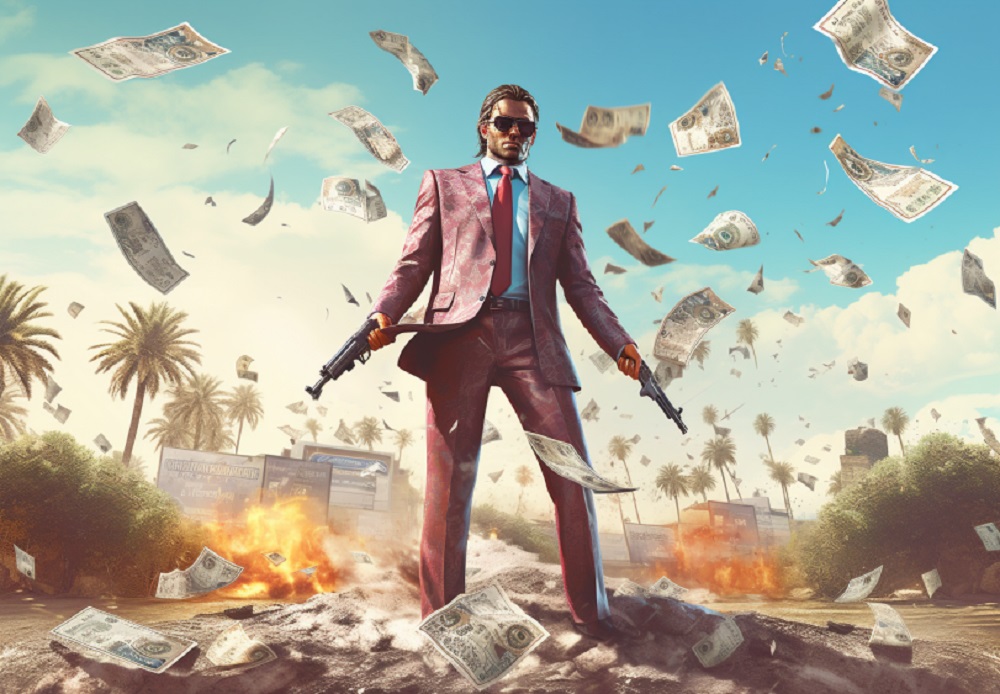Things You Should Know About Blockchain Game Development
Blockchain technology has emerged as an innovative force in the world of gaming, transforming the way we approach game development, ownership, and monetization. As more developers embrace the potential of blockchain, it's essential to understand the key aspects of this burgeoning field. Here is a comprehensive article exploring 55 things you should know about blockchain game development.
1. What is blockchain?
Blockchain is a decentralized, digital ledger that records transactions across multiple computers. It allows for secure, transparent, and tamper-proof data storage, which has made it an attractive technology for various industries, including gaming.
2. Blockchain's decentralized nature
The decentralized nature of blockchain means there is no central authority controlling the system. This offers increased security, trust, and transparency in gaming applications.
3. How blockchain can improve gaming
Blockchain can revolutionize gaming by enabling true ownership of digital assets, facilitating secure in-game transactions, and providing a transparent ecosystem that fosters trust among players and developers.
4. Blockchain game development platforms
Numerous platforms cater to blockchain game development, such as Ethereum, Binance Smart Chain, and Flow. These platforms provide tools and resources for developers to build decentralized games and applications.
5. ERC-721 and ERC-1155 tokens
ERC-721 and ERC-1155 are Ethereum token standards used to create non-fungible tokens (NFTs) for unique, in-game assets. These tokens enable true digital ownership and facilitate the trade of in-game items on decentralized marketplaces.
6. Smart contracts and their role in blockchain gaming
Smart contracts are self-executing contracts with the terms of the agreement directly written into code. They enable secure and transparent transactions in blockchain games, such as in-game purchases or rewards distribution.
7. Decentralized Autonomous Organizations (DAOs)
DAOs are organizations governed by smart contracts and operated by their members. They enable decentralized decision-making and can be used to manage aspects of blockchain games, such as community governance or in-game economies.
8. Blockchain game genres
Blockchain games span various genres, including role-playing games (RPGs), collectible card games, and virtual worlds. Developers continue to experiment with new genres and gameplay mechanics that leverage blockchain's unique capabilities.
9. Tokenization of game assets
Tokenization is the process of converting digital game assets into tokens on a blockchain. This enables true ownership, tradeability, and provable scarcity for in-game items.
10. Ownership and provenance of digital assets
Blockchain technology enables players to truly own their digital assets, as the tokens representing these assets are stored on the blockchain. Provenance, or the history of ownership, is also transparently recorded.
11. The concept of digital scarcity
Digital scarcity refers to a limited supply of digital assets, creating value and demand for these items. Blockchain technology can be used to enforce scarcity by setting a predetermined cap on the number of tokens representing a particular asset.
12. The importance of interoperability
Interoperability allows digital assets and game mechanics to be used across multiple games or platforms, increasing the utility and value of these assets.
13. The role of decentralized marketplaces
Decentralized marketplaces enable players to trade digital assets securely and transparently, with no need for intermediaries. This fosters a more open and inclusive gaming ecosystem.
14. NFTs as a monetization strategy
Non-fungible tokens (NFTs) can be used to monetize digital assets, such as in-game items or artwork. Players can purchase, trade, or sell NFTs on decentralized marketplaces, creating new revenue streams for developers.
15. The growth of decentralized finance (DeFi) in gaming (cont.)
DeFi offers opportunities for innovative monetization and financial mechanics in gaming, such as in-game lending, staking, or yield farming, creating new avenues for both developers and players to generate revenue.
16. The concept of play-to-earn
Play-to-earn is a gaming model that rewards players with cryptocurrency or other digital assets for their in-game activities. This model empowers players by allowing them to generate income through gameplay, fostering increased engagement and retention.
17. The rise of blockchain-based virtual worlds
Blockchain-based virtual worlds, such as Decentraland and The Sandbox, are decentralized, user-generated environments where players can own, create, and monetize content. These virtual worlds have given rise to new business models and opportunities for both developers and users.
18. The emergence of blockchain-based esports
Blockchain technology has the potential to revolutionize the esports industry by enabling transparent and secure transactions, decentralized governance, and verifiable player performance data.
19. The role of cryptocurrencies in gaming
Cryptocurrencies can be used as a medium of exchange for in-game transactions, enabling secure, borderless, and rapid transfers, as well as opening up new revenue streams for game developers.
20. The benefits of blockchain for game developers
Blockchain technology offers numerous benefits for developers, including new monetization models, reduced fraud, increased transparency, and the ability to create more immersive and engaging gaming experiences.
21. The benefits of blockchain for gamers
Gamers can benefit from true digital asset ownership, secure and transparent transactions, play-to-earn opportunities, and the ability to participate in decentralized gaming communities and economies.
22. The challenges of blockchain game development
Developers face several challenges when developing blockchain games, such as scalability, user experience, regulatory compliance, and attracting a mainstream audience.
23. The importance of community engagement
Engaging and nurturing a dedicated community is vital for the success of blockchain games, as players can contribute to the game's development, governance, and promotion.
24. The role of influencers in blockchain gaming
Influencers can help raise awareness and drive adoption of blockchain games by sharing their experiences, promoting projects, and engaging with their audiences.
25. The impact of blockchain on the gaming industry
Blockchain has the potential to transform the gaming industry by introducing new business models, fostering innovation, and creating more equitable and inclusive gaming experiences.
26. The future of blockchain gaming
The future of blockchain gaming will likely see increased adoption, more sophisticated game mechanics, cross-platform interoperability, and further integration with other emerging technologies, such as AI and virtual reality.
27. Legal and regulatory considerations
Developers must navigate a complex legal and regulatory landscape when developing blockchain games, including issues related to digital asset ownership, taxation, and compliance with data protection laws.
28. Intellectual property issues in blockchain gaming
Protecting intellectual property (IP) rights in the context of blockchain gaming can be challenging, as traditional IP laws may not adequately address the unique aspects of decentralized, digital assets.
29. Scalability challenges and layer-2 solutions
Scalability is a significant concern for blockchain game development, as increased transaction volume can lead to network congestion and high fees. Layer-2 solutions, such as sidechains and state channels, can help mitigate these issues.
30. The importance of security in blockchain gaming
Ensuring the security of blockchain games is crucial, as vulnerabilities can lead to loss of digital assets, reputational damage, and regulatory penalties. Developers should employ best practices for smart contract development, testing, and auditing.
31. Privacy concerns and solutions
Privacy is a critical consideration in blockchain gaming, as public blockchains can reveal sensitive information about players' transactions and digital assets. Solutions such as zero-knowledge proofs and private blockchains can help address these concerns while maintaining the benefits of blockchain technology.
32. The role of decentralized identity in gaming
Decentralized identity solutions can provide a secure, privacy-preserving way for players to manage their digital identities in blockchain games, facilitating seamless onboarding and access to decentralized services.
33. The use of oracles for real-world data integration
Oracles are third-party services that provide real-world data to blockchain networks. They can be used in blockchain games to integrate external information, such as real-world events or data from other games, into gameplay mechanics.
34. The importance of game design in blockchain gaming
Successful blockchain games must balance the unique features of blockchain technology with engaging game design, ensuring that the gameplay remains fun and accessible while leveraging the benefits of decentralization.
35. Player acquisition strategies
Attracting players to blockchain games requires targeted marketing efforts, partnerships with influencers, and the development of compelling, innovative game mechanics that differentiate the game from traditional gaming experiences.
36. Retention strategies for blockchain games
To retain players, blockchain games should focus on creating engaging content, fostering strong communities, and offering compelling incentives, such as play-to-earn mechanics and unique digital assets.
37. The importance of user experience (UX) design
A well-designed user experience is crucial for blockchain games, as it can help overcome the learning curve associated with decentralized technologies and ensure that gameplay remains enjoyable and intuitive.
38. The role of art and aesthetics in blockchain gaming
Art and aesthetics play a crucial role in blockchain gaming, as they help create immersive worlds, define the game's visual identity, and attract and retain players.
39. The impact of blockchain on game narratives
Blockchain technology can enable new narrative possibilities in gaming, such as branching storylines that are influenced by player actions or in-game events that are determined by real-world data.
40. The evolution of game mechanics in blockchain games
Blockchain games are continually experimenting with new game mechanics that leverage the unique capabilities of the technology, such as decentralized economies, digital asset ownership, and cross-platform interoperability.
41. The importance of cross-platform compatibility
Cross-platform compatibility allows players to access blockchain games and their digital assets across multiple devices and platforms, increasing the utility and value of these assets.
42. The role of AI and machine learning in blockchain gaming
AI and machine learning can be used in blockchain gaming to enhance gameplay, create dynamic content, and analyze player behavior for improved user experiences and monetization strategies.
43. The rise of decentralized gaming platforms
Decentralized gaming platforms, such as Gala Games and Immutable X, offer an alternative to traditional, centralized platforms, enabling developers to build and distribute blockchain games with increased transparency, control, and revenue potential.
44. The integration of traditional gaming with blockchain
Blockchain technology can be integrated into traditional gaming experiences, offering new opportunities for monetization, player engagement, and the creation of innovative game mechanics.
45. The role of partnerships in blockchain game development
Partnerships can play a critical role in the success of blockchain games, helping developers access resources, expertise, and distribution channels that can drive adoption and growth.
46. Marketing strategies for blockchain games
Marketing blockchain games requires a multi-pronged approach, including targeted digital advertising, influencer partnerships, community engagement, and the development of compelling, shareable content.
47. The importance of analytics in blockchain gaming
Analytics can help developers understand player behavior, optimize game design, and make data-driven decisions about monetization and user engagement.
48. User-generated content and its monetization
User-generated content can play a crucial role in blockchain gaming, offering players the opportunity to create, own, and monetize their creations, fostering a more inclusive and participatory gaming ecosystem.
49. The role of virtual and augmented reality in blockchain gaming
Virtual and augmented reality technologies can enhance blockchain gaming experiences by creating immersive environments, facilitating new gameplay mechanics, and offering novel ways to interact with digital assets.
50. The impact of blockchain on game streaming
Blockchain can transform game streaming by enabling decentralized streaming platforms, providing new monetization models, and offering increased transparency and control for both streamers and viewers.
51. The role of blockchain in mobile gaming
Blockchain technology can be integrated into mobile games, offering unique opportunities for monetization, digital asset ownership, and the development of innovative gameplay mechanics that leverage the benefits of decentralization.
52. The importance of sustainability in blockchain gaming
Sustainability is an important consideration for blockchain gaming, as energy-intensive consensus mechanisms like Proof-of-Work can have significant environmental impacts. Developers should explore alternative consensus mechanisms and adopt best practices to minimize their environmental footprint.
53. The role of blockchain in game preservation
Blockchain can help preserve and protect digital games by providing a decentralized, tamper-proof record of game data, ensuring that these cultural artifacts remain accessible and intact for future generations.
54. The potential of blockchain for gaming education
Blockchain technology can be used to create educational gaming experiences that teach players about topics such as finance, coding, and entrepreneurship, while also providing real-world, hands-on experience with blockchain tools and concepts.
55. The importance of research and development in blockchain gaming
As the field of blockchain gaming continues to evolve, ongoing research and development will be essential for driving innovation, addressing technical challenges, and ensuring that blockchain games remain at the cutting edge of the gaming industry.
Have you enjoyed the article so far? As a reward for being such a dedicated reader, we add 55 more things you should know about blockchain game development below. Follow along!
- Blockchain technology is a decentralized and distributed ledger system that allows for secure and transparent transactions.
- In-game assets, such as virtual currencies, items, and characters, can be tokenized on the blockchain.
- The use of blockchain in gaming ensures that in-game assets are owned by the players rather than the game developers or publishers.
- Blockchain games are decentralized, which means that they are not controlled by a central authority or entity.
- Blockchain games allow players to earn cryptocurrency through in-game activities, such as completing quests, battling other players, and exploring the game world.
- Blockchain games can be developed on various blockchain platforms, such as Ethereum, EOS, TRON, and others.
- Smart contracts are self-executing contracts that are written on the blockchain and can be used to automate in-game transactions.
- The use of smart contracts in blockchain game development ensures that all transactions are transparent, secure, and immutable.
- Blockchain games use non-fungible tokens (NFTs) to represent unique in-game assets, such as rare items and characters.
- NFTs are tokens that are unique and cannot be replicated, making them ideal for representing rare and unique in-game assets.
- Players can trade NFTs on blockchain marketplaces, such as OpenSea, Rarible, and others.
- The use of blockchain technology in game development provides players with true ownership of their in-game assets.
- Blockchain games can use various consensus mechanisms, such as Proof of Work (PoW), Proof of Stake (PoS), and others.
- The use of PoW in blockchain games can be energy-intensive, as it requires players to solve complex mathematical puzzles to validate transactions.
- PoS is a more energy-efficient consensus mechanism that allows players to validate transactions based on the number of tokens they hold.
- Blockchain games can be played on various devices, such as desktop computers, mobile phones, and gaming consoles.
- Blockchain games can be developed using various programming languages, such as Solidity, JavaScript, and others.
- Blockchain game developers need to have a good understanding of blockchain technology, smart contracts, and programming languages.
- Blockchain games can be developed by independent game developers or by game development companies.
- Blockchain games can be monetized through various revenue models, such as in-game purchases, advertising, and others.
- The use of blockchain technology in game development can provide players with a secure and transparent gaming experience.
- Blockchain games can be used to create unique gaming experiences, such as play-to-earn games and skill-based games.
- The use of blockchain technology in gaming can provide players with a sense of ownership and control over their in-game assets.
- Blockchain games can be used to create decentralized autonomous organizations (DAOs) that are controlled by the players.
- The use of blockchain technology in gaming can provide players with a way to earn cryptocurrency without the need for mining or investing.
- The use of blockchain technology in gaming can provide players with a way to earn passive income through staking and other activities.
- The use of blockchain technology in gaming can provide players with a way to participate in the governance of the game.
- Blockchain games can be used to create virtual economies that are powered by cryptocurrency.
- The use of blockchain technology in gaming can provide players with a way to participate in a decentralized economy.
- Blockchain games can use various game genres, such as role-playing games (RPGs), strategy games, collectible card games, and others.
- Blockchain games can use various gameplay mechanics, such as crafting, trading, battling, and others.
- Blockchain games can have various storylines and themes, such as fantasy, science fiction, and others.
- Blockchain games can have various game modes, such as single-player, multiplayer, and others.
- The use of blockchain technology in game development can provide players with a way to earn real-world value for their in-game assets.
- Blockchain games can use various forms of game mechanics, such as leveling up, questing, and character customization.
- Blockchain games can use various forms of game progression, such as skill trees, experience points, and loot drops.
- Blockchain games can use various forms of player interaction, such as alliances, guilds, and trading.
- Blockchain games can use various forms of game balance, such as rarity and scarcity of in-game assets.
- Blockchain games can use various forms of player-driven content creation, such as mods and user-generated content.
- Blockchain games can use various forms of player-driven governance, such as voting and consensus mechanisms.
- The use of blockchain technology in game development can provide players with a way to earn cryptocurrency for their contributions to the game.
- Blockchain games can use various forms of virtual currency, such as Bitcoin, Ethereum, and others.
- Blockchain games can use various forms of blockchain-based identity management, such as self-sovereign identity (SSI).
- Blockchain games can use various forms of blockchain-based reputation systems, such as reputation tokens.
- Blockchain games can use various forms of blockchain-based dispute resolution, such as arbitration and smart contract governance.
- Blockchain games can use various forms of blockchain-based social media, such as decentralized social networks.
- The use of blockchain technology in game development can provide players with a way to earn real-world income for their contributions to the game.
- Blockchain games can use various forms of in-game advertising, such as non-intrusive ads that do not disrupt gameplay.
- Blockchain games can use various forms of in-game promotions, such as discounts and special offers for in-game purchases.
- Blockchain games can use various forms of player engagement, such as community events and social media campaigns.
- The use of blockchain technology in game development can provide players with a way to earn cryptocurrency for their social media activity related to the game.
- Blockchain games can use various forms of data management, such as distributed data storage and processing.
- Blockchain games can use various forms of game security, such as distributed denial of service (DDoS) protection and anti-cheat measures.
- The use of blockchain technology in game development can provide players with a way to earn cryptocurrency for participating in game security measures.
- The use of blockchain technology in game development can provide players with a way to earn cryptocurrency for finding and reporting security vulnerabilities in the game.
Wrapping Up
Blockchain game development is an exciting and rapidly evolving field, with far-reaching implications for the future of the gaming industry. As developers continue to experiment with blockchain technology, it's crucial to stay informed and updated on the latest trends, best practices, and innovations shaping this new frontier. Armed with this comprehensive exploration of things you should know about blockchain game development, you'll be well-equipped to navigate the future of gaming as it continues to evolve and mature.






